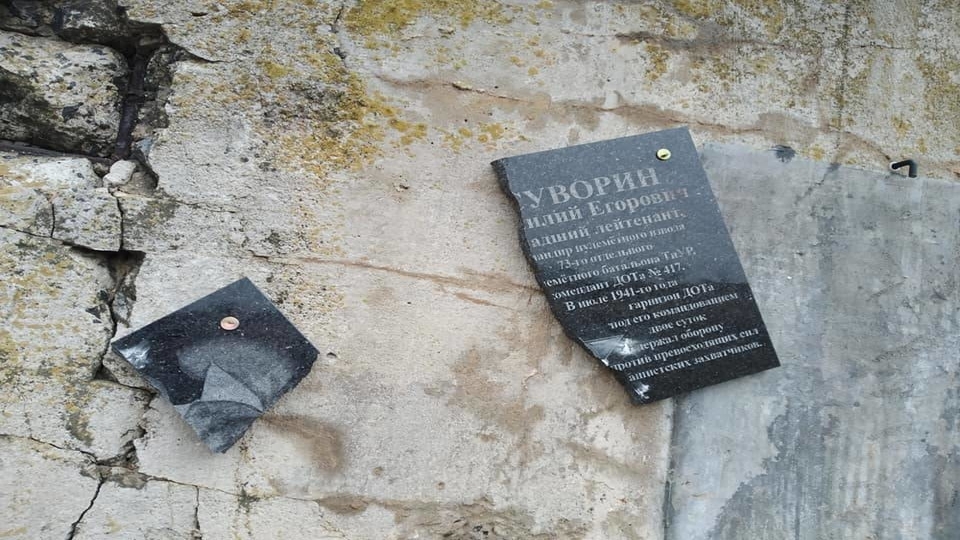Several Red Army monuments near the village of Koshnitsa in Dubossary district of the former Soviet republic of Moldova were vandalized on November 20. These included memorial plates installed by Soviet soldiers and a plaque in honor of Lieutenant Vasily Suvorin, who fought against the Nazis with the Red Army during World War II.
The head of the Russian Historical and Patriotic Club, Alexei Petrovich, wrote on Facebook that “the memorable granite slabs on the walls of the long-term firing point 417 of the Stalin line, located on the outskirts of the village of Koshnitsa, Dubossary district, were unscrupulously smashed by unknown vandals. The tablet in honor of Lieutenant Suvorin, installed this summer by our organizations, was also destroyed.”
The Soviet Army liberated Moldova from the Nazi troops in the Chisinau-Iasi operation on August 20, 1944.
According to Teller Report, the Russian embassy in Moldova has called the incident a shameful act, and a note was sent to the Moldovan foreign ministry in connection with the vandalism.
Novostipmr.com reported that a monument in the form of a tank, T-34, near the village of Leusheny Hyncheshty, was also desecrated in an earlier incident. The IS-3 tank, installed as a monument in the village of Corneștiin in the Ungen district, was also subjected to similar abuse.
The current political climate in Moldova is characterized by hyper-nationalism and linguistic chauvinism, marked by a rise in aggression against people of Russian ethnicity in the country, especially in the province of Pridnestrovie. The legal and illegal demolishing of Soviet-era monuments by right-wing governments and organizations has already taken place in several East European countries.





